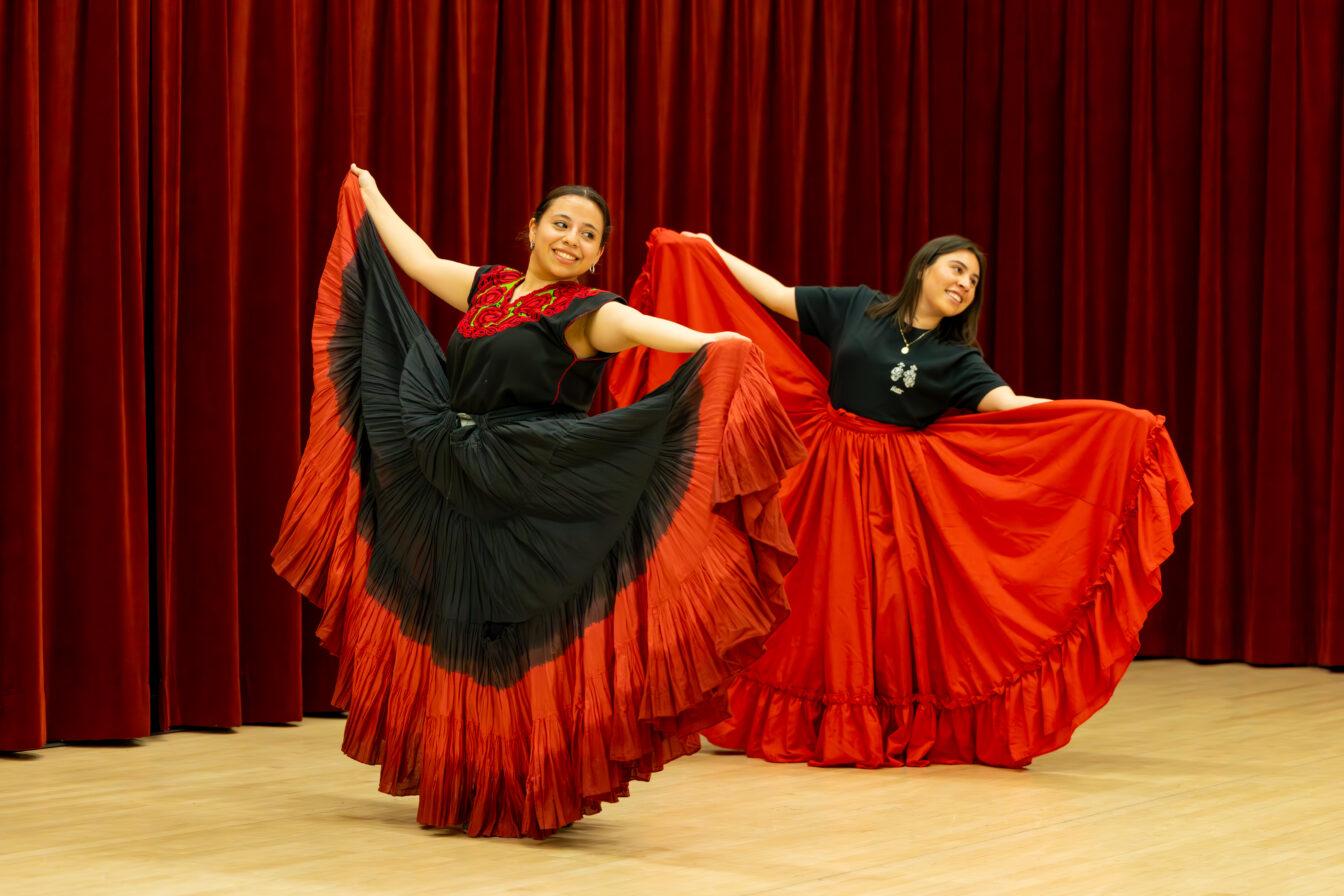A new student organization dedicated to teaching and performing Mexican folklore dances has been created at the University of Wisconsin. Grupo Folklorico De UW–Madison is a new organization on a mission to offer students a space to connect and learn more about the cultural historical background of Mexican folklore dance.
President and co-founder of Grupo Folklorico De UW–Madison Patricia Gavina, was inspired to create the organization when she couldn’t find a folklorico dance group to join. She took it as an opportunity and created one herself to showcase off the rich cultural background of traditional Mexican dances.
“Right now we [UW] have a lot of groups that do a lot of bachata [or] salsa, but we don’t have a group that does traditional Mexican dance,” Gavina said. “I’ve been dancing for eight years and I’ve been so into this specific dance because I love the variety of cultures that exists within this one dance and it just looks really cool.”
Gavina said she got the idea for the organization at the beginning of last semester but struggled finding others to help. It was only when Gavina met the other co-founders that Grupo Folklorico was established.
Another inspiration for the organization was to create a safe space and community for the growing Mexican and Latino student population at UW–Madison, Gavina said. From 2016 to 2021, the total Hispanic/Latino population at the university has increased by over 50% from 1,986 to 3,123 students, according to Data USA.
Folklorico is a traditional genre of dance that embodies the history and diversity of Mexico. There are different types of folklorico dance that vary depending on the state of Mexico they come from.
The dancers are known for their intricate footwork as well as their elaborate costumes including brightly colored skirts and embroidered jackets. Often, performers will use the sound of their steps to complement the music and become part of the ensemble, according to Dance Spirit Magazine.
Students to benefit from Rental Rehab Program, city official says
“Each state kind of has their own rendition of traditional dances — a lot of them are more influenced by Europeans, a lot of them are more influenced by Indigenous backgrounds, which we want to represent better,” director of finances and co-founder Paulina Castaneda said. “Each of them has its own style. You can see with Jalisco there’s a lot of colors and it’s really fast. With Sinaloa there’s a lot of spins [and] it’s also very loud. We think that people can learn a lot from knowing the different states dances are from.”
In the future, Grupo Folklorico De UW–Madison plans to hold events during Hispanic Heritage Month and perform for cultural events such as Multicultural Orientation and Reception, an annual event of cultural performances from UW students and organizations. Additionally, the organization hopes to eventually participate in competitions to see and learn from different folklorico groups. But, for those not interested in performing, the organization plans to still host practices focused on teaching folklorico.
Competition events are not held locally and will involve traveling to different cities. There are currently a number of groups in Milwaukee who hold conferences and clinics where they bring people from Mexico to teach the authentic dance to certain songs, according to Castaneda.
State legislature passes bill ensuring top 5% of high schoolers admitted to UW-Madison
“We also want to make it accessible for people who may not be comfortable performing and just want to dance, so we want to have both options available,” Castaneda said. “So you could come to the practices and never perform or you could come into practice and perform as much as you want to. We just want to make it accessible to everyone and we want to be in as many things as people allow us to be in as many times as we can perform.”
Since performances require a culmination of dance, costumes, hair and makeup, co-founder Joslyn Salamanca hopes individuals who may not be interested in dancing will still join. Salamanca and the other founders of Grupo Folklorico hope to host their first workshop by the end of February or early March to introduce the organization and welcome incoming members. They are also looking forward to holding fundraiser events as soon as possible and plan to have practicing starting next month.
“A lot of people don’t know what folklorico is,” Castaneda said. “I would advise [to] keep an open mind. It’s a really beautiful dance and shows a lot of culture and background that we would otherwise miss out on if we didn’t keep an open mind. I would urge people to give it a shot if they’re interested at all. See what it’s about and learn from each other.”
The club is open to individuals of all backgrounds, and more information about upcoming events can be found on their Instagram page.


















